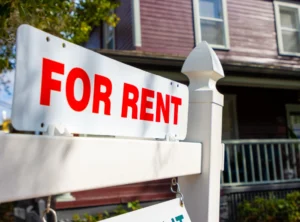The Importance of Criminal Background Checks
 According to a 2013 report by the Federal Bureau of Investigation (FBI), crime rates are still at historic lows and continue to decrease slightly each year. Crime does exist, though, and there may come a time when a prospective tenant has a criminal history. Performing tenant background checks and understanding your responsibilities as a landlord will help you determine what to do when the person who wants to rent your property has been found guilty of a crime.
According to a 2013 report by the Federal Bureau of Investigation (FBI), crime rates are still at historic lows and continue to decrease slightly each year. Crime does exist, though, and there may come a time when a prospective tenant has a criminal history. Performing tenant background checks and understanding your responsibilities as a landlord will help you determine what to do when the person who wants to rent your property has been found guilty of a crime.
Criminal Background Checks
The term “background check” is an all-emcompassing term for several different criminal screenings. Potential gun owners are put through a background check that is different from an employer background check. Tenant screenings are similar to employer background checks and look for a lot of the same information. The criminal portion of the report relies upon information from county courthouses, state databases, federal courts, sex offender registries, terrorist watch lists, and more – depending on the type of report you order.
The best practice is to apply the information consistently for all prospective tenants. This will help you avoid any claims of discrimination. Decide which offensives are automatic denials and which ones require more information or that you’re willing to consider. Think about the area where your rental is located. A property across the street from a school is probably not the one where you want to allow a registered sex offender.
Consider Your Own Liability
It’s possible you could be considered liable for the criminal actions of your tenant. Landlords have a duty to consider the safety of those living in the neighborhood when choosing a tenant. Landlords are most often held responsible for tenants who deal drugs out of a property. Depending on the circumstances, the information you had about the tenant at the time of signing the lease, and other provisions in the lease itself, you could be held responsible for other criminal acts, as well.
In more extreme cases, landlords have been fined for illegal activities, included in criminal charges, and even had their property seized. Simply having a crime occur in your rental could lower the value of the rental in the future. Residents in the neighborhood might even sue you for bringing a criminal into the area. Unfortunately, these are the realities to be considered when renting to someone with a criminal history.
Protect Yourself, Your Property, and the Neighborhood
As the landlord of the property, you do have options to protect yourself, your property, and the neighborhood when considering a tenant.
- Screen all tenants using the same procedure and asking the same questions. This helps prevent any later accusations of discrimination. Use a tenant screening service to make sure this is done in a consistent manner.
- Decide ahead of time what offenses will trigger automatic denial of an applicant. Being included on a terrorist watch list or sex offender registry might be an automatic no, while you’re willing to consider those convicted of other crimes.
- Consider the length of time since the offense or if offenses have been repeated. A DUI 20 years prior may have been a youthful mistake while someone with numerous arrests for theft could indicate an ongoing problem that has not been corrected.
- Add language into your lease that criminal behavior is unacceptable and will not be tolerated. This could help protect you later if your tenant commits a crime.
Background checks are important in all tenant screenings – both credit and criminal. You may still decide to rent to someone with a criminal history, but it’s better to be prepared ahead of time.
You already know how important a credit report can be when screening new tenants for your rental. Knowing whether someone pays their bills on time in general helps you determine the likelihood that they’ll pay their rent on time, as well. Don’t underestimate the need to know a prospective tenant’s criminal history, too. Like the credit report, their criminal background could give an indication of whether they might commit a crime again in the future. The information helps protect your investment, the neighborhood, and you.













 Accessibility
Accessibility